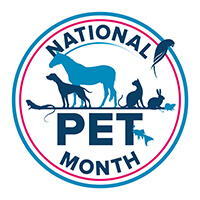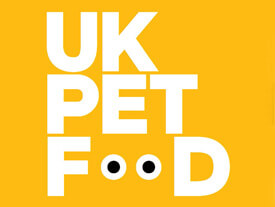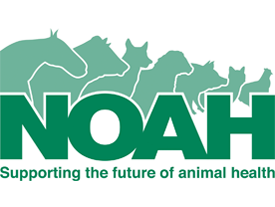The NPM Guide To A Pet Safe, Happy and Healthy Christmas
As Christmas decorations go up and our homes fill with festive gifts and treats, it’s important we do all we can to prevent our pets getting into temptation trouble and needing an emergency trip to our vet.
.jpeg)
Many of the yummy goodies and the decs that appear this time of year are potential hazards and toxic to our pets so, here’s how to avoid them with the NPM Guide To A Pet Safe, Happy and Healthy Christmas.
1. Keep Chocolate and Sweets Out Of Reach
Inquisitive canine noses can sniff out even the smallest amounts of chocolate, which can be extremely dangerous for our four legged friends. Not only can it cause vomiting and diarrhoea, it can lead to more severe problems.
Xylitol (found in sugar-free treats) and liquorice are also poisonous. So, avoid putting chocolate or sweets under the tree, don’t use treats as decorations and keep your advent calendars out of reach.
2. Raisins and Some Nuts
So many of us love the tradition of eating Christmas pudding, mince pies and Christmas cake, but the main ingredients are bad news for our dogs.
Grapes and their dried products (currants, sultanas and raisins) plus macadamia nuts are toxic for our canine companions so keep all those tasty treats out of the way.
3. Alcohol
Toasting the festivities and enjoying a little tipple or two means we may well have a good supply of alcohol in our homes this time of year.
Alcohol can have a similar effect in pets as it does in their owners when drunk in excess, so always avoid leaving hall full glasses and bottles lying around.
A wobbly and drowsy pet is never good news and could result in an emergency vet visit.
.jpeg)
4. Food Left Overs
As we tuck into our favourite fayre while our loyal pets gaze longingly up at us, it’s very easy to feel guilty and want to share our food with them, but please don’t do it.
The nutritional requirements of cats and dogs are very different to those of humans.
Human food can be too rich and fatty for our pets to digest, and may have serious consequences on their health.
Christmas left-overs can cause sickness and diarrhoea, plus cooked bones can splinter and puncture the digestive tract.
If you do want to treat your pet, there are plenty of specially formulated commercial treats, but remember no more than 10% of a pet’s calorific intake should come from treats.
5. Tinsel and Tree Decorations
A twinkling tree filled with decorations is a welcome sight in many homes and is one of the quickest ways to attract the attention of our pets.
Baubles, tinsel, tree lights, wrapping paper and ribbon can seem like attractive playthings to our curious pets, but can be very dangerous if broken or ingested.
Keep a close eye on all these things, and wherever possible, keep them out of reach, along with any batteries, which are toxic.
6. Christmas Trees and Poisonous Plants
For many of us, nothing beats the sight and smell of a real Christmas Tree, but watch out for sharp needles and be sure to regularly sweep them away to avoid them getting into your pet’s paws or mouths.
Also, remember that Poinsettia, holly, mistletoe and ivy are all toxic to cats and dogs and can cause stomach upsets.
Christmas can be a busy time, but our pets thrive with regular routines so always try and stick with theirs as much as possible, especially when it comes to feeding and daily exercise.
However much we try to keep our pets safe, sometimes accidents can happen, so if you suspect your pet may have eaten something they shouldn’t, always contact your vet straight away.
By being aware of potential festive hazards and keeping any toxic temptations out of reach, you and your pet can sit back, relax and enjoy a happy and healthy festive season.
With thanks to Pet Power EU for their help with this article


